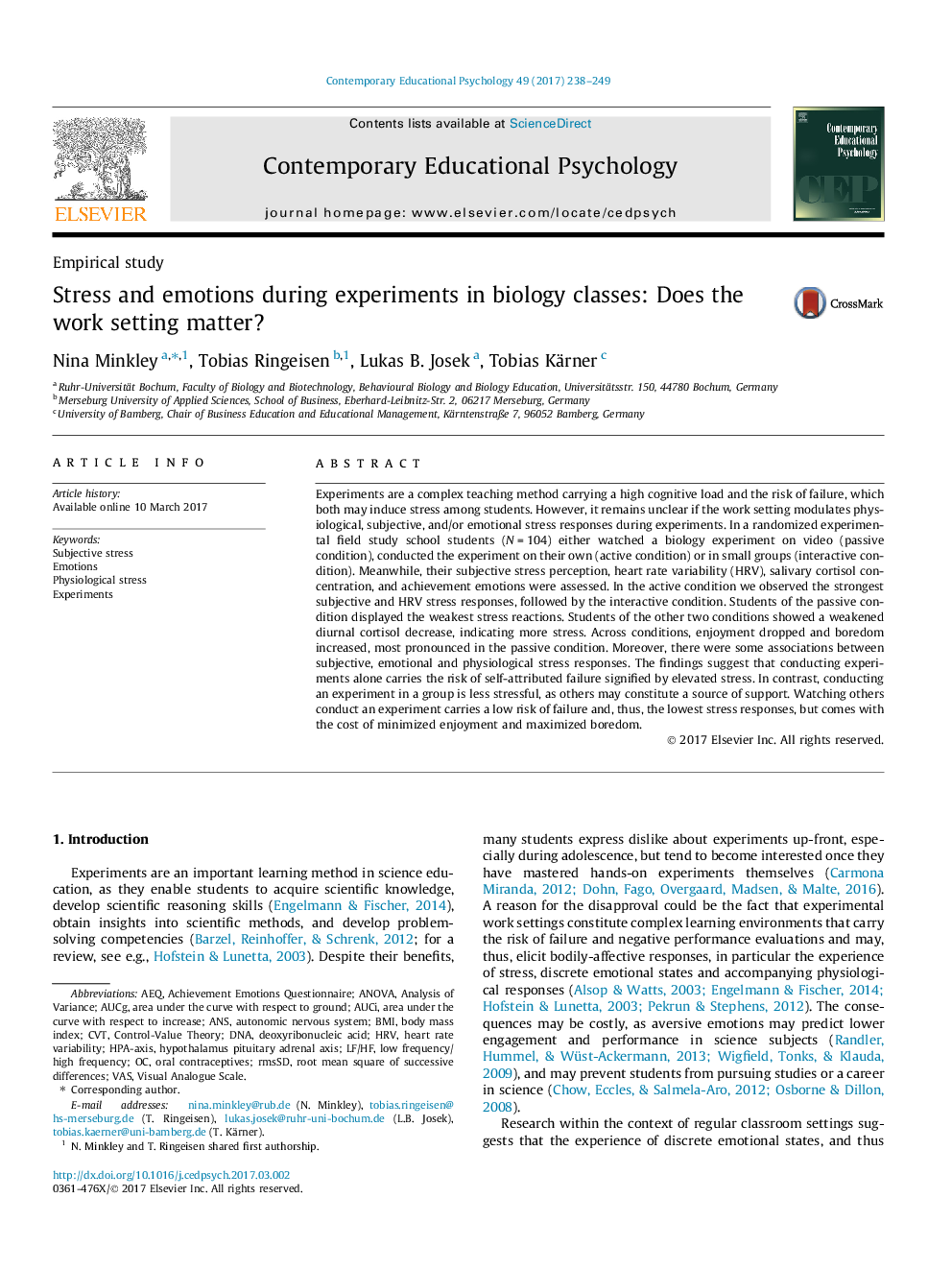| Article ID | Journal | Published Year | Pages | File Type |
|---|---|---|---|---|
| 4937906 | Contemporary Educational Psychology | 2017 | 12 Pages |
Abstract
Experiments are a complex teaching method carrying a high cognitive load and the risk of failure, which both may induce stress among students. However, it remains unclear if the work setting modulates physiological, subjective, and/or emotional stress responses during experiments. In a randomized experimental field study school students (NÂ =Â 104) either watched a biology experiment on video (passive condition), conducted the experiment on their own (active condition) or in small groups (interactive condition). Meanwhile, their subjective stress perception, heart rate variability (HRV), salivary cortisol concentration, and achievement emotions were assessed. In the active condition we observed the strongest subjective and HRV stress responses, followed by the interactive condition. Students of the passive condition displayed the weakest stress reactions. Students of the other two conditions showed a weakened diurnal cortisol decrease, indicating more stress. Across conditions, enjoyment dropped and boredom increased, most pronounced in the passive condition. Moreover, there were some associations between subjective, emotional and physiological stress responses. The findings suggest that conducting experiments alone carries the risk of self-attributed failure signified by elevated stress. In contrast, conducting an experiment in a group is less stressful, as others may constitute a source of support. Watching others conduct an experiment carries a low risk of failure and, thus, the lowest stress responses, but comes with the cost of minimized enjoyment and maximized boredom.
Keywords
root mean square of successive differencesAUCGHypothalamus pituitary adrenal axisVASLF/HFAUCiAEqRMSSDCVTDNAHRVExperimentsSubjective stressPhysiological stressdeoxyribonucleic acidanalysis of varianceANOVAAutonomic nervous systemANSbody mass indexBMIHPA-axisvisual analogue scaleControl-value theoryheart rate variabilityEmotionsoral contraceptives
Related Topics
Social Sciences and Humanities
Psychology
Applied Psychology
Authors
Nina Minkley, Tobias Ringeisen, Lukas B. Josek, Tobias Kärner,
